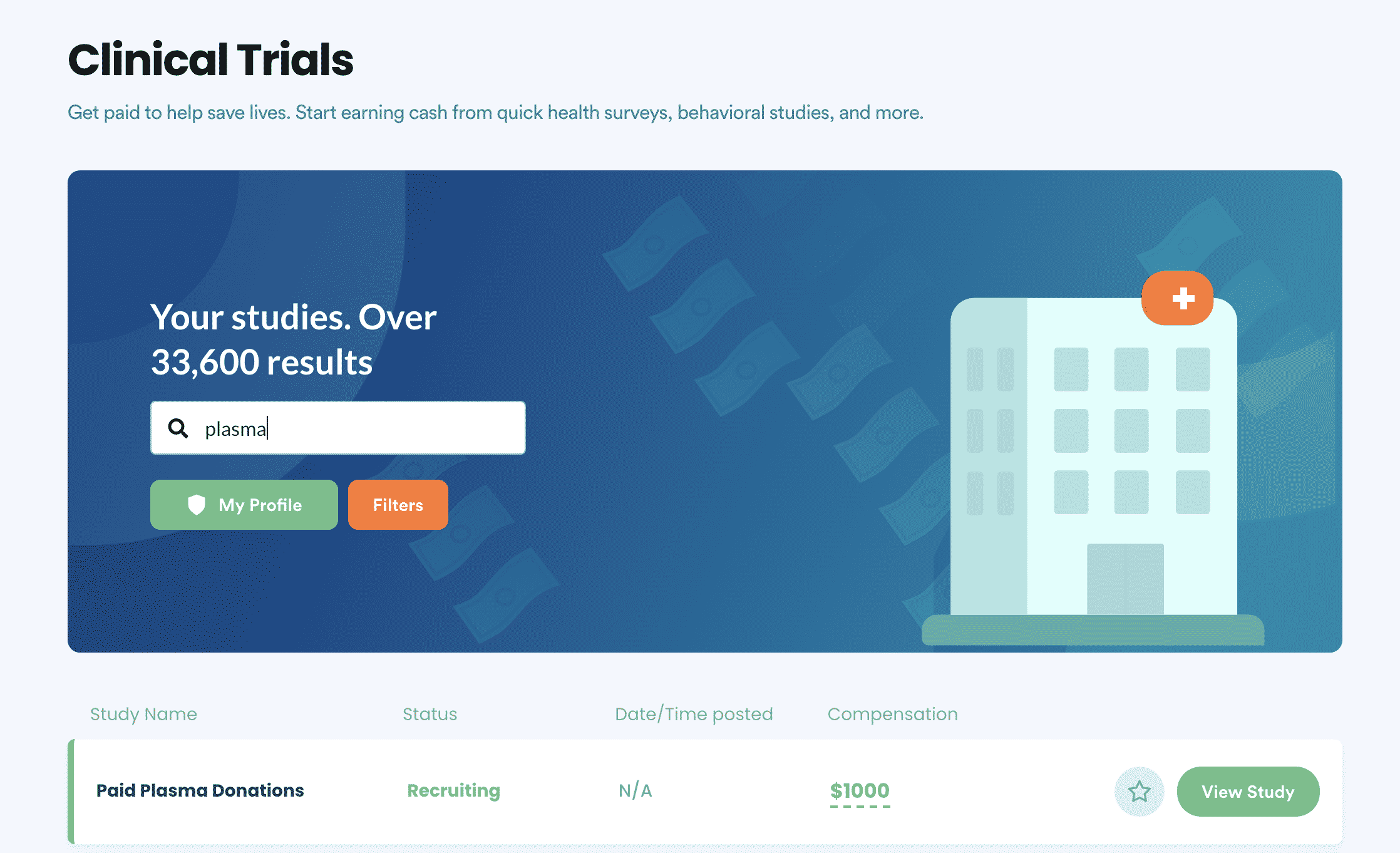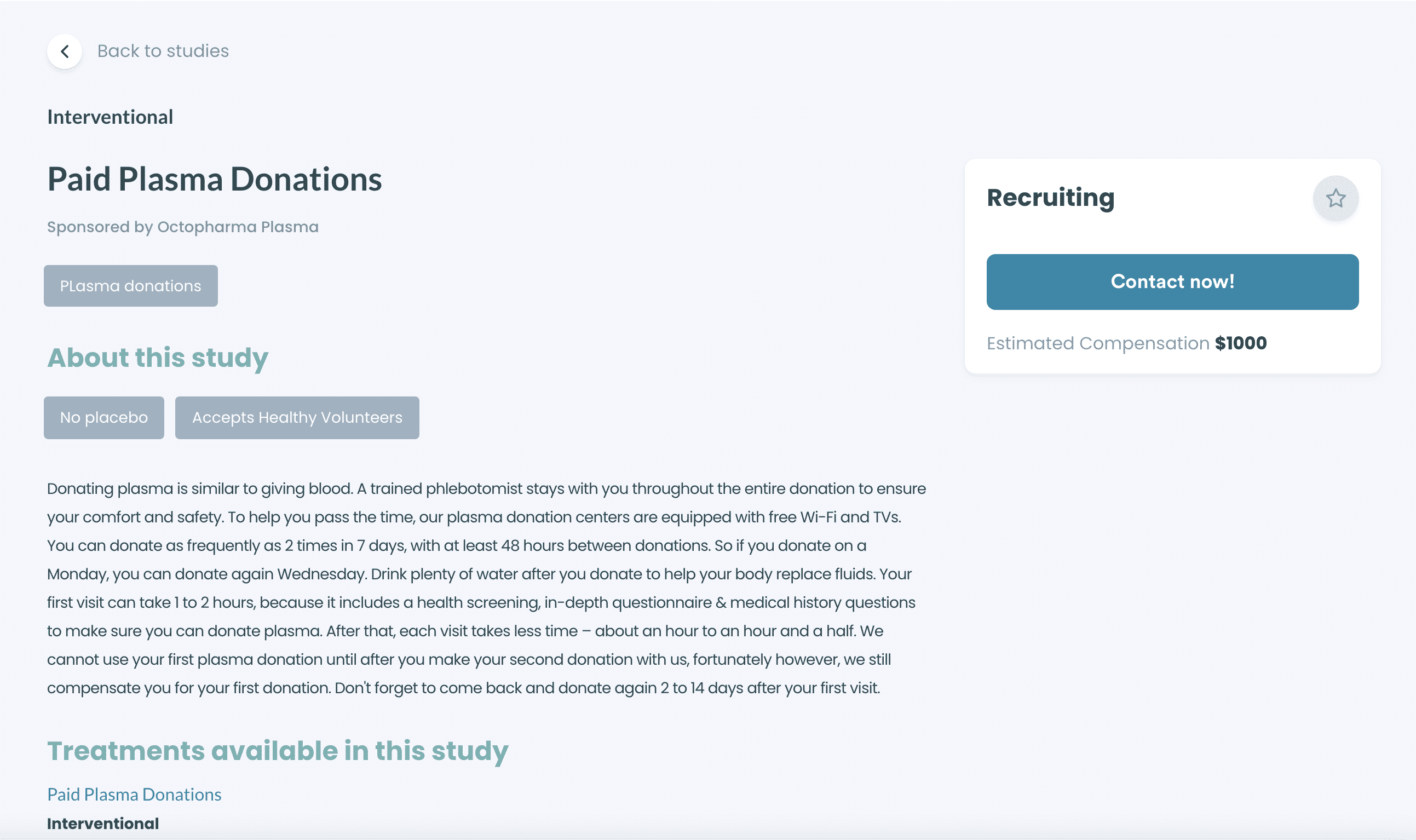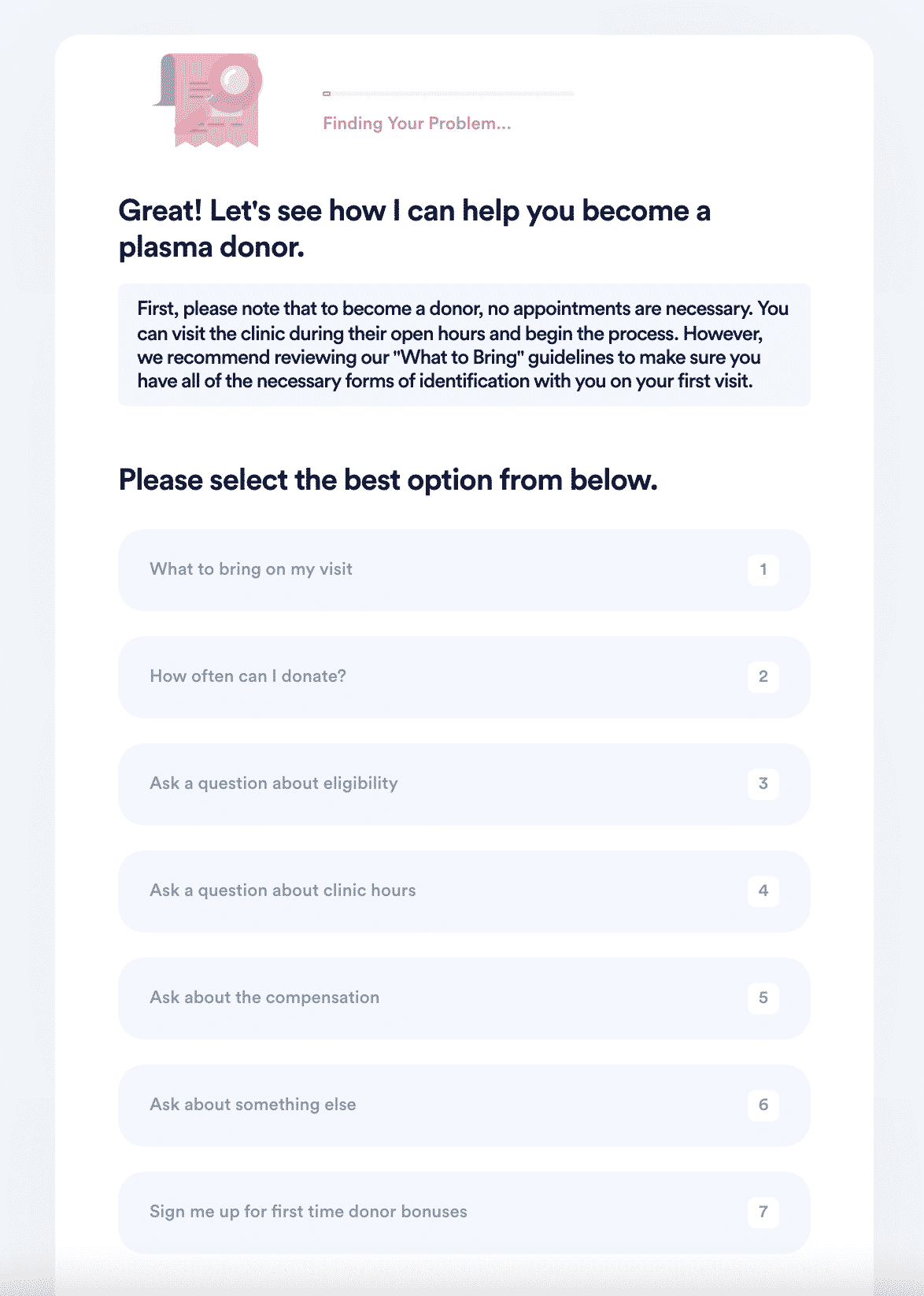Can You Donate Plasma After A Colonoscopy
With increasing advancements in medical science, plasma donors have become more vital than ever. You earn money, contribute to research, and save lives when you donate plasma. But there's more to donating plasma than previously thought. Besides meeting the requirements, you must find a center, undergo tests, and complete the paperwork. People with particular health challenges may not be eligible for plasma donation.
If so, ? How old do you have to be? Read on as DoNotPay shows you how to donate plasma for money without hassles.
What Exactly Is a Colonoscopy?
allows the visualization of your colon through a small camera. The doctor inserts a tiny camera in your anus to take photos, videos, remove polyps, and perform biopsies. In most cases, you will be sedated during the process.
Is It Possible to Donate Plasma After Having a Colonoscopy?
Yes. A colonoscopy procedure cannot prevent you from donating plasma. However, some people experience fever and get dehydrated afterward. If you feel unwell after having a colonoscopy, wait at least seven days before donating.
You can donate when there are no signs of dehydration or illness after the procedure. Waiting a few days helps you hydrate and reduce the plasma's risk of infection.
Who Can Donate Plasma After a Colonoscopy?
Here are the basic qualifications if you must become a plasma donor:
- Weigh over 110 pounds
- Be 18 and over
- Have proof of address and identity
- Pass an essential physical and medical screening like blood test and HIV test
When Can You Not Donate Plasma?
Remember, not everyone can donate plasma. Reasons to disqualify you from donating plasma are:
| Illness | You cannot donate if you have an infection, fever, cough, or receiving antibiotics. |
| Medications | Specific medical treatments like surgeries and blood transfusion can affect your ability to donate plasma. Consult your doctor before donating if you're undergoing treatment. |
| Medical History | The American Red Cross outlines 23 medical conditions that disqualify you from donating plasma. On a good note, having a colonoscopy cannot disqualify you from donating. But people with chronic illnesses like HIV, hepatitis, tuberculosis are illegible to donate.
Ensure you check the American Red Cross website for a complete list of requirements for donating plasma. |
How Many Times Can I Donate Plasma?
According to the American Red Cross, you can only donate plasma once in 28 days or 13 times a year. But a vast majority of plasma-donation centers can allow you to donate several times a week.
What Should You Know When Donating Plasma?
To be safe, you should take precautions before and after donating plasma. Here are the things to do before you donate plasma:
- Drink more water on that day
- Avoid tobacco within the first one hour before donating
- Don't use foods with high-fat content
- Sleep well at night
- Don't use alcohol and caffeine on that donation day
- Eat healthy food
- Avoid physical exertions
So, what are the precautions to take after donating plasma?
- Drink lots of water to restore lost fluids
- Avoid tobacco within 30 minutes after you donated
- Eat nutritious food two hours after donating
- Don't engage in strenuous physical activity for 24 hours.
What Is the Process for Donating Plasma?
Here are the procedures to follow if you must donate plasma for cash.
- Locate a plasma donation center near you.
- Show your proof of address, government-issued ID, and SSN.
- Undergo medical exam and review of medical history.
- Test for hemoglobin, protein levels, HIV, Covid-19, and hepatitis.
- Complete the paperwork
- Donate plasma after passing the eligibility tests.
How Long Does a Plasma Donation Last?
Plasma donation starts when all tests and examinations confirm your eligibility. But donating plasma is different from donating blood, so it takes longer. Both plasma and blood flow from your veins to the storage bags through the needle. Meanwhile, the blood is reinserted into your vein while the plasma is kept in a bag.
The process takes time if you're donating plasma for the first time. Usually, it takes about 90 minutes to donate plasma, but the first process lasts between 120 to 180 minutes. After that, you won't spend more than 90 minutes per session.
How Long Will It Take To Recover After a Plasma Donation?
After donating plasma, it takes approximately 48 hours to replenish plasma in your blood.
Where Should I Donate Plasma After Recovering From Colonoscopy?
Persons who donate plasma for cash are often picky with the center. Your distance from the center and expected cash determine your choice of donation place.
Since you're visiting the donation site in person, choose a place that's near and convenient. Besides, look for centers that offer promos, bonuses, and compensations for fresh donors. If so, endeavor to research the center before you visit.
Remember, the availability of several plasma donations sites in the US compounds your search. In other words, knowing the right place for you can be a huge hassle.
While some centers pay higher, others pay lower. Sometimes, you lack time and patience to research and pick the highest-paying centers. But DoNotPay can make it easier for you.
How Can DoNotPay Help You Donate Plasma After a Colonoscopy?
DoNotPay Clinical Trials Product is designed to help you find the best plasma donation centers near you. We sought and compared these sites' compensation, eligibility requirements, enabling you to know what to expect.
DoNotPay can help you contact them for questions on eligibility, work hours, compensation, and promos. DoNotPay is convenient, fast, affordable, easy, and reliable.
Here's how you can use DoNotPay to become a plasma donor after recovering from colonoscopy:
- Search "plasma donations" on DoNotPay and find the nearest donation clinic through our clinical trials product.

- Select the "Contact Now" button to learn more about eligibility criteria, contact the clinic with questions, or sign up for first-time donor bonuses.

- Verify your information and submit your inquiry! DoNotPay will contact the clinic on your behalf and make sure your questions get answered.

What Else Can DoNotPay Do?
Besides assisting you in donating plasma, DoNotPay can help you resolve problems with various entities. Here are links to some services we offer:
- Advanced health care directive
- Clinical trial
- Request sick leave
- Make insurance claims
If you need help with donating plasma for cash after colonoscopy, contact DoNotPay now.
 By
By